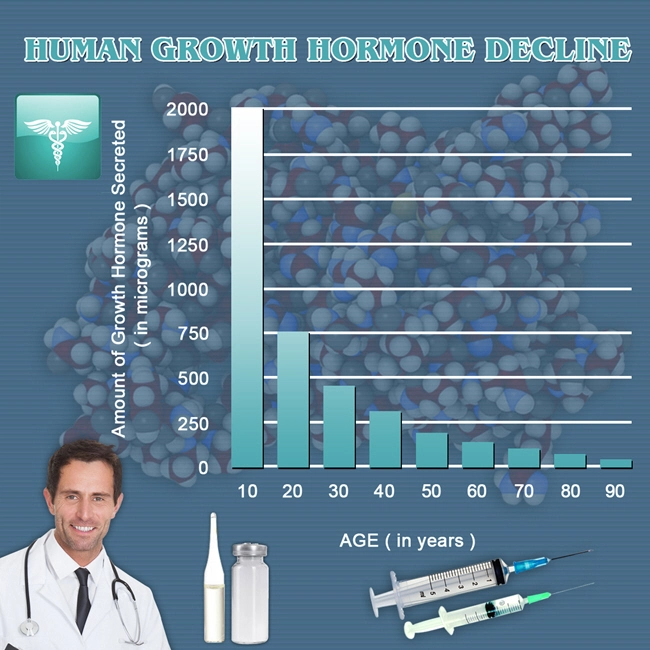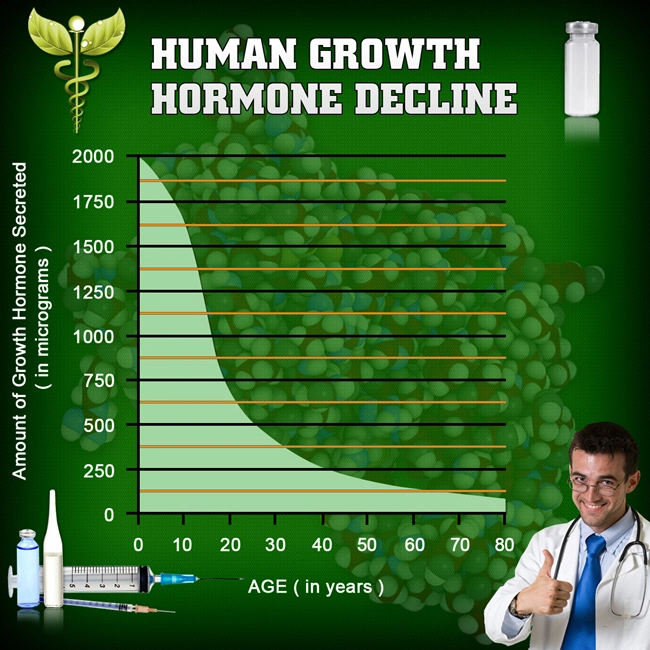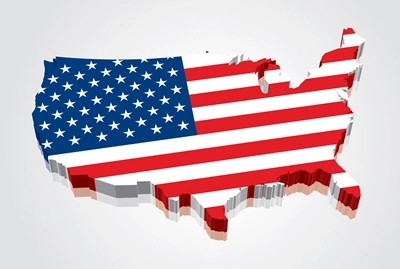
Introduction to Trichotillomania
Trichotillomania, often referred to as hair-pulling disorder, is a psychological condition characterized by the recurrent, irresistible urge to pull out one's hair, resulting in noticeable hair loss. While this disorder can affect individuals of any age and gender, it is crucial to address its impact on American males, who may face unique challenges in seeking help and managing the condition.
The Prevalence and Impact on American Males
Trichotillomania affects approximately 1-2% of the general population, with studies suggesting that the prevalence might be higher among males than previously thought. For American males, the disorder can lead to significant distress and impairment in social, occupational, and other important areas of functioning. The visible hair loss can contribute to feelings of embarrassment and low self-esteem, which may be exacerbated by societal expectations of masculinity and appearance.
Psychological Underpinnings of Trichotillomania
The exact cause of trichotillomania remains unclear, but it is believed to be influenced by a combination of genetic, neurobiological, and environmental factors. In American males, stress, anxiety, and other emotional triggers can play a significant role in the onset and perpetuation of hair-pulling behaviors. The disorder is often associated with other mental health conditions, such as depression, anxiety disorders, and obsessive-compulsive disorder (OCD), which may require comprehensive treatment approaches.
Recognizing the Signs and Symptoms
American males with trichotillomania may exhibit various signs and symptoms, including recurrent hair pulling that results in hair loss, repeated attempts to decrease or stop the behavior, and significant distress or impairment due to the hair pulling. The affected areas commonly include the scalp, eyebrows, and beard, but hair pulling can occur in any hair-bearing region of the body. It is essential for individuals and their loved ones to recognize these signs early to seek appropriate help.
Treatment and Management Strategies
Effective treatment for trichotillomania in American males often involves a combination of behavioral therapy, medication, and support from mental health professionals. Habit reversal training (HRT), a form of cognitive-behavioral therapy, has been shown to be particularly effective in reducing hair-pulling behaviors. This therapy helps individuals become more aware of their urges and develop alternative coping strategies. In some cases, medications such as selective serotonin reuptake inhibitors (SSRIs) may be prescribed to help manage underlying anxiety or depression.
The Role of Support Systems
Support from family, friends, and support groups can be invaluable for American males dealing with trichotillomania. Sharing experiences with others who understand the challenges of the disorder can reduce feelings of isolation and provide encouragement throughout the recovery process. Additionally, educating loved ones about trichotillomania can foster a more supportive environment and help reduce stigma.
Overcoming Stigma and Seeking Help
One of the significant barriers for American males with trichotillomania is the stigma associated with mental health issues and the perceived impact on masculinity. Encouraging open conversations about mental health and promoting awareness of trichotillomania can help break down these barriers. It is crucial for affected individuals to understand that seeking help is a sign of strength and a step towards regaining control over their lives.
Conclusion: A Path Forward
Trichotillomania is a challenging disorder, but with the right support and treatment, American males can manage their symptoms and improve their quality of life. By increasing awareness, reducing stigma, and promoting access to effective treatments, we can help those affected by trichotillomania lead fulfilling lives. If you or someone you know is struggling with hair-pulling behaviors, consider reaching out to a mental health professional for guidance and support.
Contact Us Today For A Free Consultation
Dear Patient,
Once you have completing the above contact form, for security purposes and confirmation, please confirm your information by calling us.
Please call now: 1-800-380-5339.
Welcoming You To Our Clinic, Professor Tom Henderson.

- Demystifying the Effects: Unveiling the Medical Significance of Hair Loss [Last Updated On: March 2nd, 2025] [Originally Added On: March 2nd, 2025]
- Exploring the Connection Between Thyroid Health and Hair Vitality: Understanding the Impact of Thyroid Disorders on Hair Growth and Loss [Last Updated On: March 3rd, 2025] [Originally Added On: March 3rd, 2025]
- Unveiling the Silent Saboteur: The Connection Between Scalp Infections and Male Hair Loss in America [Last Updated On: March 3rd, 2025] [Originally Added On: March 3rd, 2025]
- Exploring Surgical Solutions for Hair Loss in American Men [Last Updated On: March 4th, 2025] [Originally Added On: March 4th, 2025]
- Comprehensive Guide to Understanding and Managing Male Hair Loss in America [Last Updated On: March 5th, 2025] [Originally Added On: March 5th, 2025]
- Understanding Pediatric Hair Loss: Causes, Impacts, and Treatment Options [Last Updated On: March 6th, 2025] [Originally Added On: March 6th, 2025]
- Exploring OTC Hair Loss Treatments: Efficacy, Alternatives, and Recommendations for American Men [Last Updated On: March 7th, 2025] [Originally Added On: March 7th, 2025]
- Exploring Medical Wigs: A Vital Solution for Hair Loss in American Males [Last Updated On: March 7th, 2025] [Originally Added On: March 7th, 2025]
- Comprehensive Guide to Holistic Hair Loss Remedies for American Men's Optimal Well-being [Last Updated On: March 8th, 2025] [Originally Added On: March 8th, 2025]
- Genetic Insights into Male Hair Loss: Implications for Prevention and Treatment Strategies [Last Updated On: March 9th, 2025] [Originally Added On: March 9th, 2025]
- Stress-Induced Hair Loss in American Males: A Comprehensive Medical Insight [Last Updated On: March 14th, 2025] [Originally Added On: March 12th, 2025]
- Understanding Hormonal Hair Loss in American Males: A Comprehensive Guide [Last Updated On: March 13th, 2025] [Originally Added On: March 13th, 2025]
- Chemotherapy-Induced Hair Loss in American Males: Causes, Coping, and Future Solutions [Last Updated On: March 15th, 2025] [Originally Added On: March 15th, 2025]
- Understanding Hair Loss: Separating Fact from Fiction for American Men [Last Updated On: March 15th, 2025] [Originally Added On: March 15th, 2025]
- Allergies and Hair Loss: Exploring the Link for American Males [Last Updated On: March 16th, 2025] [Originally Added On: March 16th, 2025]
- FDA-Approved Medications for Hair Loss: A Comprehensive Guide for American Men [Last Updated On: March 17th, 2025] [Originally Added On: March 17th, 2025]
- Monogenic Hair Loss in American Males: Genetics, Impact, and Treatment Options [Last Updated On: March 18th, 2025] [Originally Added On: March 18th, 2025]
- Hair Loss in American Men: A Potential Indicator of Heart Disease Risk [Last Updated On: March 19th, 2025] [Originally Added On: March 19th, 2025]
- Hair Loss in American Men: Psychological Impacts and Coping Strategies [Last Updated On: March 20th, 2025] [Originally Added On: March 20th, 2025]
- Alopecia Universalis: Understanding Causes, Treatments, and Coping Strategies for American Males [Last Updated On: March 20th, 2025] [Originally Added On: March 20th, 2025]
- Diabetes and Hair Loss in American Males: Causes, Connections, and Management Strategies [Last Updated On: March 20th, 2025] [Originally Added On: March 20th, 2025]
- Managing Hair Loss in American Males During Pregnancy: Causes and Strategies [Last Updated On: March 21st, 2025] [Originally Added On: March 21st, 2025]
- Understanding and Treating Hair Loss in American Men: Types, Causes, and Solutions [Last Updated On: March 21st, 2025] [Originally Added On: March 21st, 2025]
- Hair Loss in American Men: Genetic, Age, Stress, and Environmental Factors [Last Updated On: March 21st, 2025] [Originally Added On: March 21st, 2025]
- Antidepressants and Hair Loss in American Males: Insights and Management Strategies [Last Updated On: March 22nd, 2025] [Originally Added On: March 22nd, 2025]
- Topical Treatments for Male Hair Loss: Minoxidil, Finasteride, and Beyond [Last Updated On: March 22nd, 2025] [Originally Added On: March 22nd, 2025]
- Hair Cloning: A Revolutionary Solution for Hair Loss in American Males [Last Updated On: March 23rd, 2025] [Originally Added On: March 23rd, 2025]
- Shock Loss After Hair Transplants: Causes, Timeline, and Management for American Males [Last Updated On: March 23rd, 2025] [Originally Added On: March 23rd, 2025]
- Drug-Induced Hair Loss in American Males: Mechanisms, Culprits, and Management Strategies [Last Updated On: March 23rd, 2025] [Originally Added On: March 23rd, 2025]
- Age-Related Hair Loss in American Males: Causes, Impacts, and Management Strategies [Last Updated On: March 23rd, 2025] [Originally Added On: March 23rd, 2025]
- Essential Vitamins and Hair Loss: Insights for American Males [Last Updated On: March 23rd, 2025] [Originally Added On: March 23rd, 2025]
- Managing Receding Hairlines: Causes, Treatments, and Holistic Approaches for Men [Last Updated On: March 23rd, 2025] [Originally Added On: March 23rd, 2025]
- Revolutionizing Hair Loss Treatment: Innovations in Stem Cells, 3D Bioprinting, and Gene Therapy [Last Updated On: March 23rd, 2025] [Originally Added On: March 23rd, 2025]
- Hair Loss in American Males: Understanding Causes and Restoration Surgeries [Last Updated On: March 23rd, 2025] [Originally Added On: March 23rd, 2025]
- Medical Hair Loss in American Males: Causes, Impacts, and Treatment Options [Last Updated On: March 23rd, 2025] [Originally Added On: March 23rd, 2025]
- Steroids and Male Pattern Baldness: Risks, Genetics, and Mitigation Strategies [Last Updated On: March 23rd, 2025] [Originally Added On: March 23rd, 2025]
- Anabolic Steroids and Hair Loss: Mechanisms, Prevalence, and Management in American Males [Last Updated On: March 24th, 2025] [Originally Added On: March 24th, 2025]
- Revolutionizing Hair Loss Treatment: New Hope for American Males [Last Updated On: March 24th, 2025] [Originally Added On: March 24th, 2025]
- Thyroid Disorders and Hair Loss in American Males: Causes and Treatments [Last Updated On: March 24th, 2025] [Originally Added On: March 24th, 2025]
- Male Pattern Baldness: Advances in Treatment and Understanding [Last Updated On: March 24th, 2025] [Originally Added On: March 24th, 2025]
- Hair Loss Reversal: Success Stories and Effective Treatments for American Men [Last Updated On: March 24th, 2025] [Originally Added On: March 24th, 2025]
- Innovative Strategies to Prevent Hair Loss in American Males Undergoing Chemotherapy [Last Updated On: March 24th, 2025] [Originally Added On: March 24th, 2025]
- Hair Loss in Young American Males: Causes, Impacts, and Management Strategies [Last Updated On: March 25th, 2025] [Originally Added On: March 25th, 2025]
- Hair Follicle Miniaturization: Causes, Impacts, and Treatments for American Males [Last Updated On: March 25th, 2025] [Originally Added On: March 25th, 2025]
- Anemia and Hair Loss in American Men: Causes, Diagnosis, and Management Strategies [Last Updated On: March 25th, 2025] [Originally Added On: March 25th, 2025]
- PCOS in Men: Understanding Hormonal Imbalance and Hair Loss [Last Updated On: March 25th, 2025] [Originally Added On: March 25th, 2025]
- Telogen Effluvium in American Men: Causes, Symptoms, and Management Strategies [Last Updated On: March 25th, 2025] [Originally Added On: March 25th, 2025]
- Post-COVID Hair Loss: Causes, Symptoms, and Management Strategies for American Males [Last Updated On: March 25th, 2025] [Originally Added On: March 25th, 2025]
- Hair Loss in American Men: Societal Views vs. Medical Facts and Coping Strategies [Last Updated On: March 26th, 2025] [Originally Added On: March 26th, 2025]
- AI Revolutionizes Hair Loss Treatment: Precision, Personalization, and Future Innovations [Last Updated On: March 26th, 2025] [Originally Added On: March 26th, 2025]
- Autoimmune Disorders and Hair Loss: Mechanisms, Impacts, and Treatments for American Men [Last Updated On: March 26th, 2025] [Originally Added On: March 26th, 2025]
- Androgenetic Alopecia: Advances in Understanding and Treating Male Pattern Baldness [Last Updated On: March 26th, 2025] [Originally Added On: March 26th, 2025]
- Immune System Disorders and Hair Loss in American Males: Causes, Treatments, and Hope [Last Updated On: March 26th, 2025] [Originally Added On: March 26th, 2025]
- Hair Extensions and Permanent Hair Loss: Risks for American Males [Last Updated On: March 27th, 2025] [Originally Added On: March 27th, 2025]
- High Blood Pressure and Hair Loss: Exploring the Link in American Men [Last Updated On: March 27th, 2025] [Originally Added On: March 27th, 2025]
- Low Light Laser Therapy: A Non-Invasive Solution for Male Hair Loss [Last Updated On: March 27th, 2025] [Originally Added On: March 27th, 2025]
- Aromatherapy for Hair Loss: A Holistic Approach for American Males [Last Updated On: March 28th, 2025] [Originally Added On: March 28th, 2025]
- Postpartum Hair Loss in American Males: Causes, Symptoms, and Management Strategies [Last Updated On: March 28th, 2025] [Originally Added On: March 28th, 2025]
- Advanced Hair Loss Diagnosis: Empowering American Men with New Technologies [Last Updated On: March 28th, 2025] [Originally Added On: March 28th, 2025]
- Rogaine for Hair Loss: Benefits, Risks, and Considerations for American Males [Last Updated On: March 28th, 2025] [Originally Added On: March 28th, 2025]
- Hair Dyes and Hair Loss: Investigating the Link in American Men [Last Updated On: March 28th, 2025] [Originally Added On: March 28th, 2025]
- PRP Therapy: A Promising Solution for Hair Loss in American Males [Last Updated On: March 28th, 2025] [Originally Added On: March 28th, 2025]
- Scalp Psoriasis in American Males: Understanding and Managing Hair Loss [Last Updated On: March 29th, 2025] [Originally Added On: March 29th, 2025]
- Understanding and Managing Hair Loss in American Males: A Guide for Physicians [Last Updated On: March 29th, 2025] [Originally Added On: March 29th, 2025]
- Andropause and Hair Loss in American Males: Causes, Impacts, and Management Strategies [Last Updated On: March 30th, 2025] [Originally Added On: March 30th, 2025]
- Efficacy of Hair Loss Shampoos for American Men: Scientific Insights and Recommendations [Last Updated On: April 1st, 2025] [Originally Added On: April 1st, 2025]
- Stem Cell Therapy: A Breakthrough in Treating Male Pattern Baldness [Last Updated On: April 3rd, 2025] [Originally Added On: April 3rd, 2025]
- Hair Loss in American Men: Impacts on Mental Health and Coping Strategies [Last Updated On: April 3rd, 2025] [Originally Added On: April 3rd, 2025]
- Minoxidil: Effective Hair Loss Solution for American Men [Last Updated On: April 6th, 2025] [Originally Added On: April 6th, 2025]
- Hair Loss and Mental Health: A Holistic Approach for American Males [Last Updated On: April 7th, 2025] [Originally Added On: April 7th, 2025]
- Central Centrifugal Cicatricial Alopecia: Understanding and Managing Hair Loss in American Males [Last Updated On: April 8th, 2025] [Originally Added On: April 8th, 2025]
- Gut Health and Hair Loss: Understanding the Connection in American Males [Last Updated On: April 8th, 2025] [Originally Added On: April 8th, 2025]
- Hair Loss After Bariatric Surgery: Causes, Management, and Recovery for American Males [Last Updated On: April 9th, 2025] [Originally Added On: April 9th, 2025]
- Hair Breakage vs. Hair Loss: Causes, Differences, and Solutions for American Males [Last Updated On: April 9th, 2025] [Originally Added On: April 9th, 2025]
- Weight Loss Diets and Hair Loss: Insights for American Men [Last Updated On: April 12th, 2025] [Originally Added On: April 12th, 2025]
- Managing Hair Loss in Men: Nutrition, Stress, Smoking, Sleep, and Exercise Strategies [Last Updated On: April 12th, 2025] [Originally Added On: April 12th, 2025]
- Protein Shakes and Hair Loss: Analyzing the Link in American Males [Last Updated On: April 12th, 2025] [Originally Added On: April 12th, 2025]
- Nutrition's Role in Preventing Hair Loss: Essential Nutrients for Men's Hair Health [Last Updated On: April 12th, 2025] [Originally Added On: April 12th, 2025]
- Iron Deficiency and Hair Loss: Supplements and Dietary Solutions for American Males [Last Updated On: April 12th, 2025] [Originally Added On: April 12th, 2025]
- Smoking and Hair Loss: Medical Insights for American Males [Last Updated On: April 13th, 2025] [Originally Added On: April 13th, 2025]









